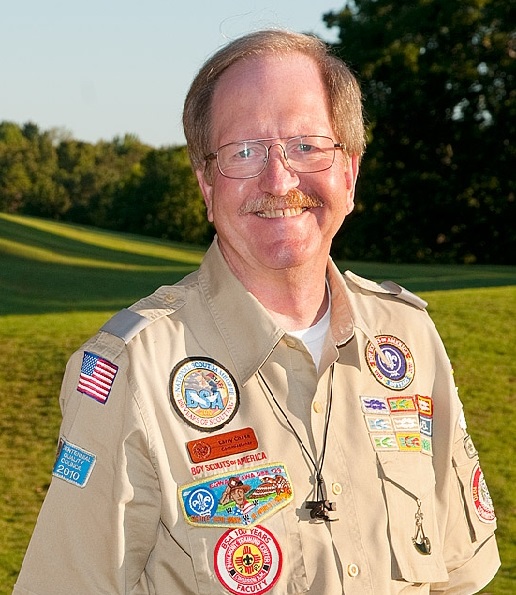
I got my start as a Cub Scout volunteer the same way many Scouting volunteers get their start: I showed up to the first meeting not knowing what to expect … a few weeks later, I was the Cubmaster.
I spent the next month or so in a fog. We had just lost a huge class of Arrow of Light Scouts to the BSA’s programs for older youth, our overall pack membership was down into the teens, and it was my job and my job alone — or so I thought — to fix everything.
I remember exactly where I was when I got the call that changed everything.
“Hello,” said the friendly voice on the other end of the phone. “I just wanted to reach out to introduce myself. I’m a commissioner, and I’m here to help.”
Boy, did he ever.
Just learning that I, in fact, did not have to fix everything myself was a huge relief.
Commissioners are volunteers whose job is to help ensure that every member of the BSA has a great Scouting experience. There are commissioners at the national, council and district level, and none of us could do what we do without them.

All about service
Larry Chase got his start as a Cub Scout volunteer the same way many Scouting volunteers get their start.
“I came home from work one night and my wife told me we were going to a meeting at my son’s elementary school,” Chase says. “We heard why our son should be involved in Scouting, and we found that our son wanted to be in Scouting. But we also learned that without volunteers, the pack can’t exist.”
Chase ended up becoming the pack’s treasurer. A few years later, he became a Scoutmaster, then a council commissioner.
Now, he is the chair of the national commissioner service team, reporting directly to Scott Sorrels, the BSA’s national commissioner.
The service team is responsible for supporting what commissioners do throughout the BSA.
“We are there to help them achieve the mission and vision of commissioners,” Chase says.
Just as Scouting leaders lean on commissioners for support, commissioners lean on the national commissioner service team.
“Commissioners are all about enabling unit leaders to be successful — and enabling units to be successful — so we can attract and retain more kids and more adult volunteers,” Chase says.
Like having a doctor who makes house calls
Rob Brodner, assistant district commissioner in the Circle Ten Council’s Iron Horse District, says unit commissioners are like doctors.
“When you are sick, you go to the doctor, and he diagnoses you and prescribes a plan for you to get better,” says Brodner. “He doesn’t wave a magic wand and you magically get better. When a unit is sick, a unit commissioner comes in, makes a diagnosis, and prescribes a plan to get the unit healthy again.
“To help from getting sick, you see a doctor for regular checkups. In the same way, a unit commissioner will regularly check up on their units.”
So where do all these commissioners come from?
Many of them are former Cubmasters, Scoutmasters or committee chairs. But that’s not a requirement.
The only requirement is a willingness to help others.
“Friendliness and outgoing personality are great traits to have,” says Brodner.
The BSA needs more commissioners
Chase has an important piece of advice he shares with all prospective commissioners.
“They’re not there to tell the leaders what to do,” he says. “They’re there to help unit leaders deliver the program successfully and to run the unit successfully.”
If you’re a unit leader and you have a question about BSA policy, your commissioner could be your best source. If you’re a unit leader and you need advice on recruiting new members, your commissioner could be your best source.
If you’re a unit leader and you’re just looking to talk about Scouting to someone who has been there, done that, your commissioner is who you should call.
There’s only one problem with commissioners: There aren’t enough of them. The BSA’s enrollment is on the rise, which is a good thing. That also brings with it the need for more commissioners.
“We’re looking for people who want to help Scouting grow and succeed,” says Chase. “If Scouting is growing every single day, then we’ll need more commissioners every single day.”
Click here to learn more about becoming a commissioner, or contact your local council to sign up.
Inspire Leadership, Foster Values: Donate to Scouting
When you give to Scouting, you are making it possible for young people to have extraordinary opportunities that will allow them to embrace their true potential and become the remarkable individuals they are destined to be.
Donate Today
